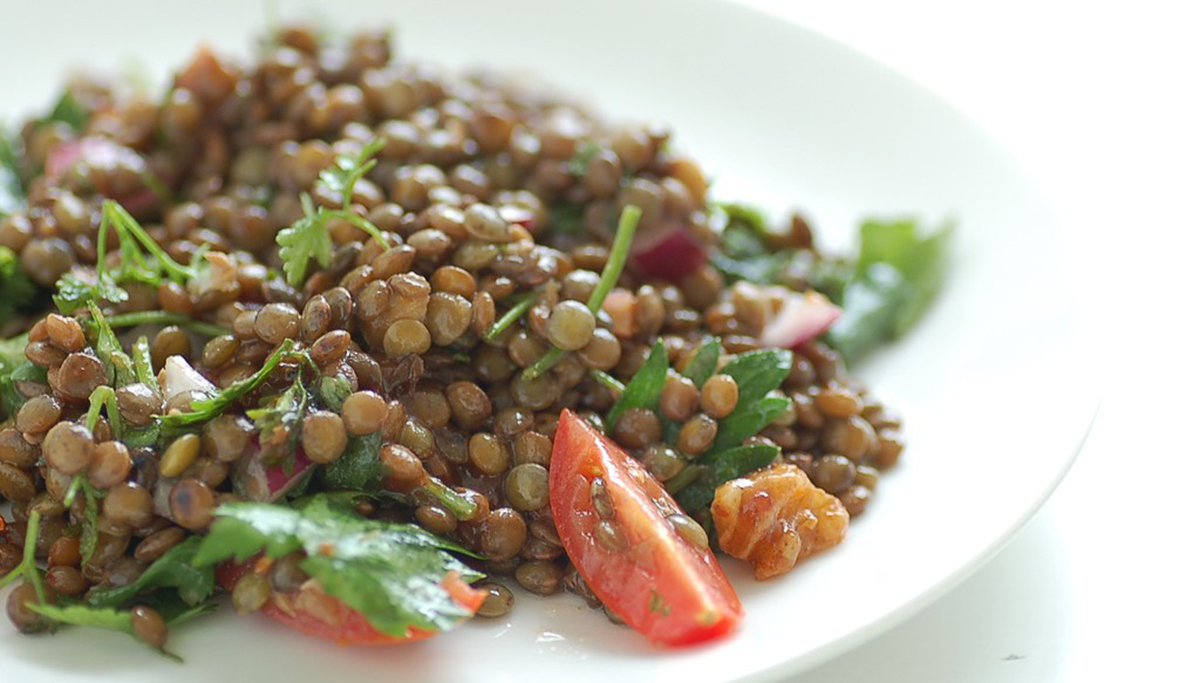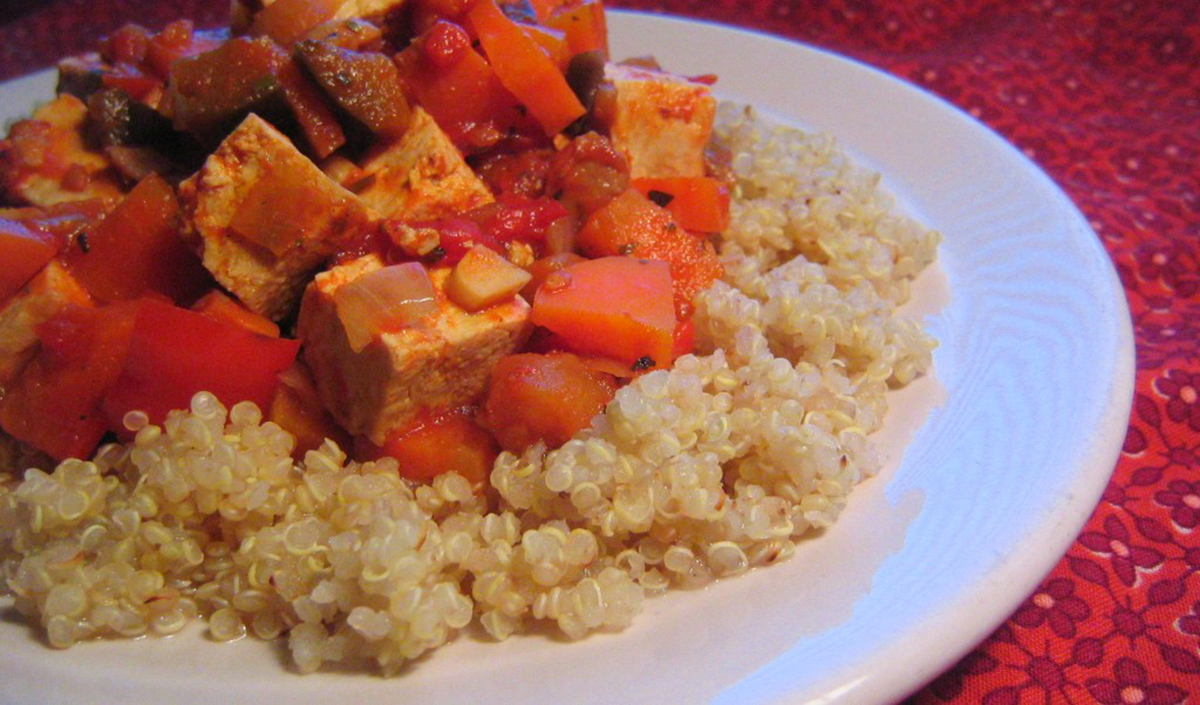One of the biggest challenges about being vegan is getting enough protein in the diet. Protein is a really important macronutrient and without it we would have no structure. Protein comprises 20 building blocks called amino acids, which are essentially the building blocks for life. Eight of these 20 amino acids (namely isoleucine, leucine, lysine, methionine, phenylalanine, threonine, tryptophan, valine) are what is known as essential amino acids or amino acids that cannot be manufactured by the body and must be obtained through the food we eat. Amino acid functions in the body are numerous. Proteins provide structural functions in the body and form part of enzymes, neurotransmitters and hormones, which regulate bodily processes like sleep, mood, digestion and reproduction. They also help form our muscle and skin tissue. Amino acids also form the basic structure of our DNA- the genetic material that contains our blueprint, or code for life. It is therefore vital that we get protein from a variety of sources so that we can get a varied amino acid profile.

The protein present in animal sources is what is called “complete protein” because it contains all 8 essential amino acids. Amino acids are also present in certain vegetable sources including soya, vegetables, legumes, nuts and seeds, with small amounts found in grains too. These sources are not all complete though, which makes it even more vital that a vegan gets a varied diet in terms of protein.
Top Vegan Protein Sources
Lentils
These small round legumes are powerhouses of nutrients including protein, fibre, low GI carbohydrate, B vitamins and minerals, especially iron. They are traditionally made into Dhal, an Indian style lentil stew and are also great added to salads and winter soups.
Protein content/100g: 26g
Peanut Butter
Rich, creamy and filling, peanut butter is the perfect on-topper or dipper for vegans. Not a nut as such, the peanut is actually a legume, making it the best protein source of all the nuts. Peanuts are rich in folate, iron and are also great sources of monounsaturated fats. The latest findings about peanuts show that they contain resveratrol-a phytochemical (also found in red wine and grape juice) that is associated with a lowered risk of heart disease. The red skin found on Spanish peanuts is a concentrated source of resveratrol.
Protein content/100g: 24g
Almonds
Often referred to as “The King of Nuts”, almonds are an excellent source of vitamin E, potassium, magnesium, phosphorous, protein and fibre and are one of the richest nut sources of healthy monounsaturated fats.
Protein content/100g: 22g
See Also: Pros and Cons of the Vegan Nutritional Style
Chia Seeds
Chia seeds are most well known for their high fibre and omega 3-content. Because it is a seed, it is also a reasonable protein source with the added benefit of omega-3s for vegans. Chia is relatively new on the health circuit and is quite similar in nutritional content to flaxseeds. The also has a low glycemic load making them useful for blood sugar control.
Protein content/100g: 16g
Soya Based Products And Quinoa Are Excellent Sources Of Protein For Vegans
Tofu
Tofu, or soya bean curd, is a great vegan soya based delicacy that has a meaty mouth feel. Because it is made from soya beans, it also provides complete protein. It is great on its own, marinated or added to stews and stir-fries. On its own it has quite a bland taste but will absorb whatever flavors you cook it with like a sponge.
Protein content/100g: 16g

Edamame
Young soya beans, or edamame are a popular Japanese fish. Whole soya beans provide a complete source of protein and an exceptionally low glycemic index and high fibre content making them an ideal food.
Edamame are great as a starter to a Japanese meal or can be added to salads, soups and stews to bump up protein content.
Protein content/100g: 10g
Quinoa
Most grains are not adequate sources of protein, but quinoa is different. This South American seed grain is somewhere between a seed and a grain.
When cooked it resembles small, translucent balls. It has a slightly nutty taste and goes well with both pasta and rice based sauces and is a great substitute for either. It also works well combined with fruit and non-dairy milk as a breakfast cereal.
Protein content/100g: 14g
Vegan-friendly Protein-rich Recipes
Quinoa Breakfast Bowl (Serves 4)
Ingredients:
- 1-cup raw quinoa
- 150ml coconut milk
- 1 banana
- 1-cup blueberries (or any berries in season)
- 40g flaked almonds
- Add quinoa to 2 cups water in a saucepan. Bring to the boil, add coconut milk and simmer for 15-20 minutes until quinoa is translucent. Set aside to cool.
- Chop up the banana
- Add the banana, berries and flaked almonds to the quinoa and serve up in bowls.
Mock Chopped Chicken Liver (Serves 4)
Ingredients:
- 1 cup brown lentils
- 1 small onion, chopped
- 1-cup vegetable broth
- 1 Tbs. olive oil
- 2 Tbs. smooth peanut butter
- Pinch salt
- Place lentils in a saucepan and bring to the boil. Simmer lentils covered for 30-40 minutes. Transfer lentils into a food processor.
- Heat the oil in a medium saucepan. Add onions and cook, stirring, for 5 minutes.
- Add the vegetable broth, olive oil and peanut butter into the food processor and pulse until the mixture becomes smooth. Serve as you would a pate.
Scrambled Tofu (Serves 4)
Ingredients:
- 1 Tbs. coconut oil
- ½ onion, chopped
- Small bag baby spinach leaves
- Handful white button mushrooms, sliced
- 1 medium tomato, chopped
- 250g block of tofu
- 1 tsp turmeric
- Salt and pepper to taste
See Also: Five Groups of Vegan and Vegetarian High-Protein Foods
- Heat the coconut oil in a large skillet. Add the onions and cook for 5 minutes.
- Add the mushrooms, tomato and tofu and cook for another 5 minutes, then add the spinach and cook until reduced.
- Add turmeric, salt and pepper and serve as you would scrambled egg, on a slice of wholegrain bread.
- Photo courtesy of jules by Flickr : www.flickr.com/photos/stone-soup/357601017
- Photo courtesy of rusvaplauke by Flickr : www.flickr.com/photos/rusvaplauke/2208274955


Your thoughts on this